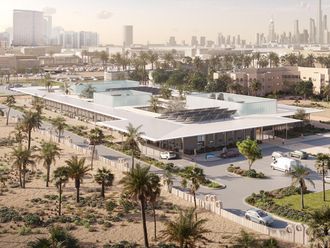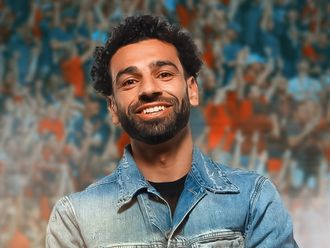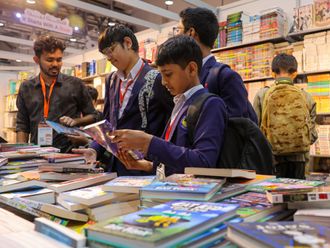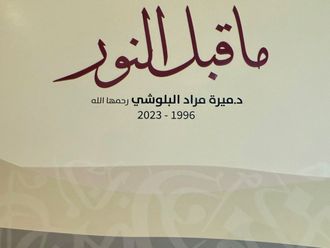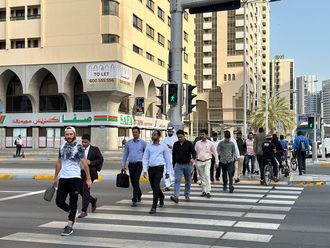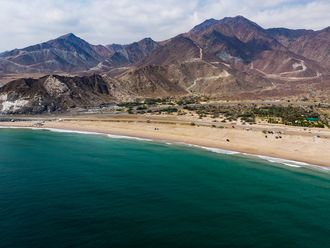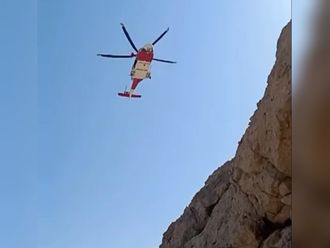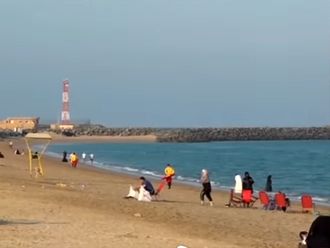The giant carp is being shifted to another pond. |
They have not only survived the smouldering summer heat for over a decade but have grown phenomenally after being brought in as 10-gram fingerlings from Singapore hatchery in 1992.
But now the school of giant silver carp (hypophthalmichthys molitrix) are all set to move to their new (freshwater) home, a pond that's only a stone's throw away from their current habitat at the Dubai Creek Golf and Yacht Club.
The reason: the landmark golf course is being redesigned by Thomas Bjorn, Dubai Golf Tour professional and 2001 winner of the Dubai Desert Classic.
The silver carp are part of 16,000 fish, including the common koi and grass carp, that are being relocated by employees at the club to another pond within the property to facilitate the makeover. A tourist complex with 94 executive villas and a 238-room hotel is set to rise by mid-2005 at the club premises.
The Yacht Club and Marina, however, will remain open throughout the period of overhaul. Workers at the club have fished out several carps that have survived 12 scorching summers when the water supply to the first of the three-lake chain peaks at 46ºC.
The fish will be introduced to the new ponds when the redesigned golf course opens by yearend.
"These exceptionally large silvers are particularly strong fish which grew by a phenomenal 2,000 per cent over the past 12 years," said Kevin Hyland, ecologist with the Wildlife Protection Office in Dubai.
Carp are considered a delicacy in some European countries. Silver carp are native to the Yangtze River, West, Kwangsi and Kwangtung rivers in South and central Asia, and the Amur River in Russia.
Smaller carp feed on zooplankton (suspended algal matter) and have a specialised feeding system on their gill rakers that allows them to filter out the algae.
"It is for this reason that they were chosen for the Creekside. Herbivorous diet also reflected the length of their gut, which is 15 times their body length, even longer than predatory animals," Hyland said.
The carp do not reproduce naturally in non-native waters and therefore do not compete with the local fauna. They are also good fish to mix in "polyculture", whereby different fish are chosen to occupy different ecological niches within the same pond.
At the club, grass carp, (ctenopharyn idella, also from China) were also stocked to feed on larger plants.
The series of three lakes at the Creekside club were originally fully stocked, but the really successful one was the last in the chain.
This is because the water during summer cooled down considerably by the time it reached the third lake in the chain, allowing the fish to survive, said Hyland.


